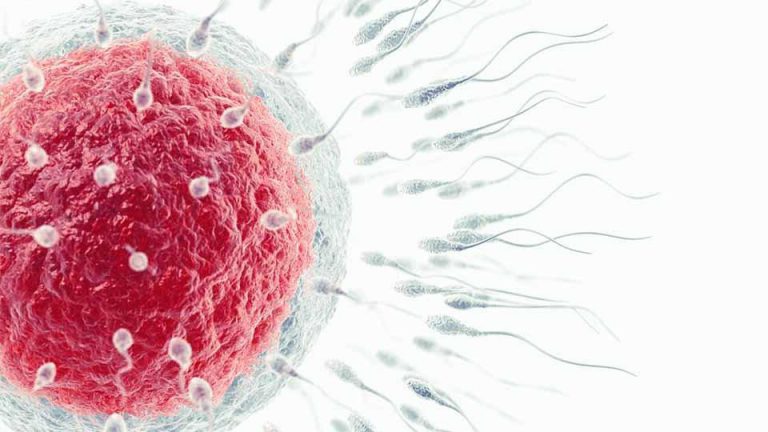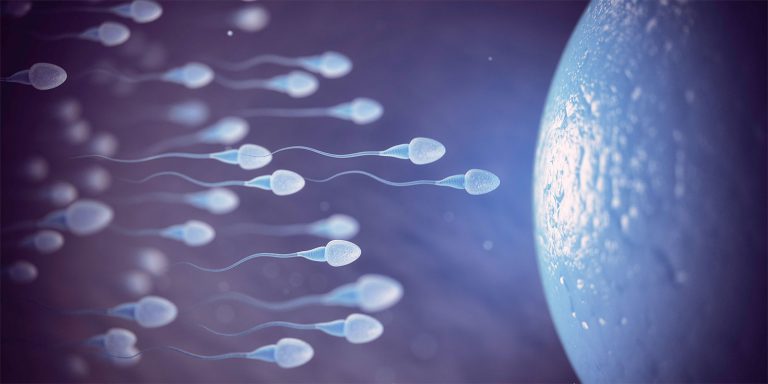Advanced sperm quality tests take an advanced look at genes for insights about your fertility, such as examining genes for aberrant DNA methylation where studies show an association with increased risk of male-factor infertility and with increased risk of poor embryo development.
Below are 10 of the most interesting and impactful genes to look at for abnormalities which can affect male fertility.
1. ID3
The ID3 gene is important for gene expression programs in the male reproductive system and is known to have a crucial role in proper embryo development.
ID3 is a transcriptional regulator expressed in the cytoplasm of Sertoli cell’s, epididymis, and during embryogenesis. ID3 gene mutations in mouse models negatively impact fertility and reproductive outcome. Further evidence shows that disruption of the ID3 gene impacts neuronal differentiation and proper vascularization in the embryo.
Related Studies:
2. TAS2R60
TAS2Rs are bitter taste receptors that are highly expressed in the testis. It is thought these receptors may be important for chemotaxis during fertilization.
These receptors likely impact sperm behavior by helping the sperm navigate towards the egg during fertilization. It is also thought that TAS2Rs may be involved in spermatogenesis as well. Studies in mice have shown that bitter compounds interact with TAS2R receptors on spermatids and spermatozoa, increasing intracellular calcium concentrations which may affect chemotaxis, motility, and fertilization.
Related Studies:
3. CAMTA1
The CAMTA gene is important for embryonic heart development, which is crucial for proper embryogenesis.
The CAMTA gene family are transcription factors that regulate gene expression by binding with calmodulin. Calmodulin binds to calcium, which in turn, can bind with CAMTA to regulate the expression of various processes in the body. Calcium regulation is highly important for fertility and can influence motility, capacitation, and acrosome reaction.
The removal of this gene in mouse models has been shown to result in reduced fertility. Further, CAMTA1 is thought to be important for embryonic cardiac development by mediating the function of various transcription factors. Expression after fertilization is very high. The deletion of this gene in mouse models has been shown to be embryonic lethal. CAMTA1 gene expression is shown to be regulated by DNA methylation.
Related Studies:
4. VAMP3
The VAMP3 gene is important for human sperm acrosome reaction.
VAMP3 is a membrane protein that helps dock the sperm acrosome to the plasma membrane–an important process for the acrosome reaction. VAMP3 is regulated by calcium ions, therefore, disruption of calcium ion channels may inhibit proper acrosome reaction which may impact the sperm’s ability to fertilize the egg.
Related Studies:
5. MIR223
MIR223 is a microRNA that appears to be important for embryo implantation.
MIR223 is a microRNA that is involved in establishing and maintaining the cell fate of immune cells. MicroRNA’s work by targeting certain messenger RNAs (mRNAs) to prevent them from coding for a specific protein. MIR223 has a binding site on leukemia inhibitory factor (LIF), an important protein for endometrial receptivity. One study done in mice, found that high levels of MIR223 decreased embryo implantation rates and LIF protein expression.
Related Studies:
6. FOXF1
FOXF1 is a gene that is highly important for embryo development.
Studies of mice with disrupted FOXF1 show that embryos die at mid-gestation due to defects in mesodermal differentiation and cell adhesion. The FOXF1 gene is expressed in extra-embryonic, lateral plate mesoderm, and splanchnic mesenchyme surrounding the gut and its derivatives.
Related Studies:
7. KIAA0146 or “SPIDR”
The SPIDR gene is involved in DNA stability and damage repair.
KIAA0146, or “SPIDR”, is an important scaffolding protein involved in homologous recombination, or DNA break-repair. Studies show that depletion of SPIDR result in genome instability and hypersensitivity to DNA damaging agents.
Related Studies:
8. GATA2
GATA2 is an important gene that regulates differentiation of blood stem cells and the knockout of GATA2 is fatal to embryos.
GATA2 is a member of the GATA family of zinc finger proteins that regulate gene expression. GATA2 is one of six genes in the GATA family, and is considered the master regulator of hematopoietic stem cells (HSC) and progenitor cells (HPC). Studies with GATA2 null mice have shown defective hematopoiesis and fatal anemia during gestation. There have been documented cases of chronic neutropenia evolving into myelodysplasia (MDS), acute myelogenous leukemia (AML) or MonoMac syndrome resulting from GATA2 mutations.
Related Studies:
9. CATSPER2
CatSper2 is an essential gene required for sperm penetration and chemotaxis.
CatSper2 is essential for the generation of a hyper-activated form of motility which provides the “power-kick” necessary for the sperm to enter the egg. Additionally, human CatSper is involved in chemotaxis. Progesterone released from the egg creates a “scent-trail” that helps navigate the sperm towards the egg.
Related Studies:
10. PLAGL1
PLAGL1 is a paternally expressed gene that helps regulate cell cycle, apoptosis, fetal growth and is strongly associated with low sperm concentration, motility and morphology.
PLAGL1 is an important gene that helps regulate cell cycle, apoptosis and fetal growth. It helps regulate the expression of another gene, PACAP1, which stimulates insulin secretion. PLAGL1 is a maternally imprinted gene, therefore expressed only by the paternal side. This gene should not be methylated in sperm. Epigenetic studies in humans have reported a strong association with aberrant methylation of PLAGL1 and low sperm concentration, motility, morphology. Proper methylation of PLAGL1 is critical for prenatal and post-natal growth in healthy infants.
Related Studies:







